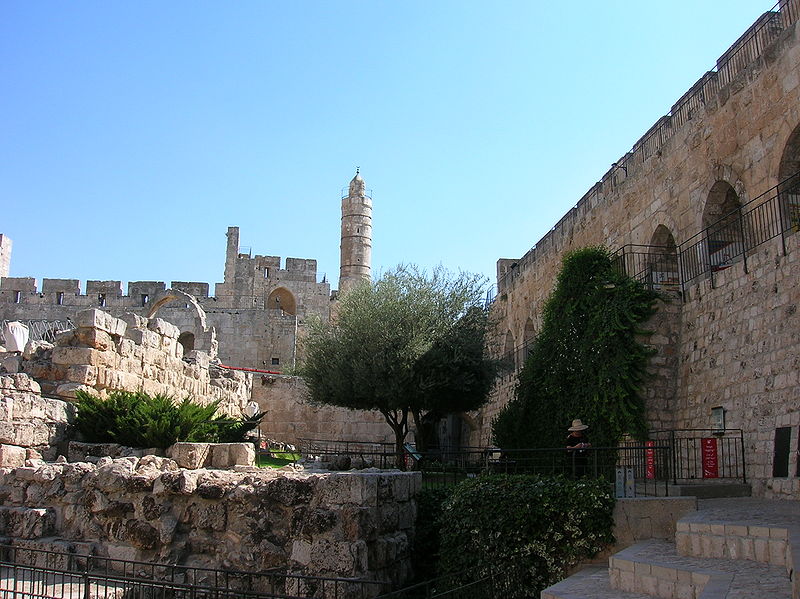6 June. Paul and Barnabas attend the Council of Jerusalem
"Then some [Jewish] people came to Antioch [in Syria] from Judea and began teaching the non-Jewish believers: 'You cannot be saved if you are not circumcised as Moses taught us.' Paul and Barnabas were against this teaching and argued with them about it."
"So the church [in Antioch] decided to send Paul, Barnabas and some others to Jerusalem where they could talk more about this with the apostles and elders. The church helped them leave on the trip, and they went through the countries of Phoenicia and Samaria, telling all about how those who were not Jewish had turned to God. This made all the believers very happy."
"When they arrived in Jerusalem, they were welcomed by the apostles, the elders and the church. Paul, Barnabas and the others told about everything God had done with them. But some of the believers [in Jesus] who belonged to the [Jewish] Pharisee group came forwards and said, 'The non-Jewish believers must be circumcised. They must be told to obey the law of Moses.'"
"The apostles and the elders gathered to consider this problem [of whether believers in Jesus had to become Jews]. After a long debate, Peter stood up and said to them, 'Brothers, you know that in the early days God chose me [a Jew] from among you [Jews] to preach the Good News to those who are not Jewish'." [See Acts 10:1-48]
"'They heard the Good News from me, and they believed. God, who knows the thoughts of everyone, accepted them. He showed this to us by giving them the Holy Spirit, just as he did to us. To God, these people are not different from us.'"
"'So now why are you testing God by putting a heavy load [of keeping the Jewish law] around the necks of the non-Jewish believers? It is a load that neither we nor our ancestors were able to carry. But we believe that we and they too will be saved by the grace of the Lord Jesus...'"
"After they finished speaking, James [the leader of the church in Jerusalem] said, 'Brothers, listen to me. Simon [Peter] has told us how God showed his love for the non-Jewish people. For the first time he is accepting from among them a people to be his own...'"
"'So I think we should not bother the non-Jewish people who are turning to God [with Jewish rituals]. Instead, we should write a letter to them telling them these things: stay away from food that has been offered to idols... any kind of sexual sin, eating animals that have been strangled, and blood.'"
(Acts 15:1-20)

Some months after Paul and Barnabas returned from their 'first missionary journey', a group of traditional Hebraic Jewish believers from Jerusalem arrived in Antioch. They began to teach that the new non-Jewish Gentile believers (whose faith was in Jesus as the Jewish Messiah) must be circumcised as Jewish converts.
Paul (a more radical Greek-speaking Jew) fiercely disagreed with the Jewish believers from Jerusalem, and argued against them. So he and Barnabas were sent to Jerusalem to report on their missionary activity among the Gentiles in Galatia.
They travelled south through Phoenicia and Samaria with a Gentile believer, Titus, (see Galatians 2:1) and were welcomed by the apostles and leaders of the church in Jerusalem.
The leaders in Jerusalem met during the winter of 49/50AD to discuss their policy towards Gentile believers. At that time, believers in ‘the Way of Salvation’ (see Acts 9:2) were still regarded as a Jewish sect. Only later, in Antioch – where the first Gentile church was established and believers were called ‘Christians’ for the first time (see Acts 11:19-26) – was the Christian church recognised as something uniquely distinct from Judaism.
Paul and Barnabas addressed the assembly of believers and told them about the miraculous signs and wonders that God had done among the Gentiles in Galatia (see Galatians 3:2 & 4:8-16).
James concluded that the Jewish believers shouldn’t make it difficult for the Gentiles who were turning to God by insisting that they convert to Judaism. Non-Jewish believers (such as Titus – see Galatians 2:3) were no longer required to follow the traditional Jewish religious rituals such as circumcision and ritual cleansing. In effect, after the Council of Jerusalem, Christianity became a new faith community open to both Jews and non-Jews across the known world.
The council meeting also decided that James, Peter and John (the leading members of the Christian community in Jerusalem) should concentrate on witnessing to the Jews, while Paul and Barnabas were given the leaders’ blessing to take the Good News to the Gentiles across the whole Roman world (see Paul's account of the Council of Jerusalem in Galatians 2:1-9).
The photo shows the city walls of Jerusalem near the Tower of David (by EdoM).
You can read more about the Council of Jerusalem @ https://www.thebiblejourney.org/…/paul-barnabas-attend-the…/
